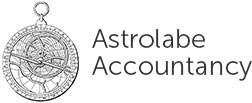Budget 2017-18 Changes for Investors
 The 2017-18 Budget contains a number of changes for investors in superannuation and owners of investment properties.
The 2017-18 Budget contains a number of changes for investors in superannuation and owners of investment properties.
Property travel expenses to be disallowed
From 1 July 2017 travel expenses related to a residential rental property will not be tax deductible. This is because of concerns that many taxpayers have been claiming travel deductions without correctly apportioning costs related to private purposes.
Payments to third parties such as real estate agents will still be deductible.
Property depreciation deductions to be limited
From 1 July 2017 depreciation deductions for plant and equipment in residential real estate properties will be limited to plant and equipment purchased by the investor. Investors can no longer claim depreciation on plant and equipment purchased with the property. This is because of concerns that plant and equipment are being depreciated by successive owners beyond their original cost.
This change will not apply to properties already owned or under contract at 7:30pm AEST on 9 May 2017. The change does not apply to claiming capital works deductions on the construction cost of the dwelling itself.
Increased CGT discount for affordable housing
The 50% Capital Gains Tax discount will be increased to 60% for Australians for investments in qualifying affordable housing. To qualify the housing must be provided to low to moderate income tenants through a registered community housing provider at below the private rental market rate, and must be held for at least three years. The increased discount will also apply to individuals investing in affordable housing via managed investment trusts.
Additional superannuation contributions allowed
From 1 July 2018 persons over age 64 may contribute up to $300,000 into superannuation from selling their main residence. This contribution is not tax-deductible, but is not subject to any of the limitations on non-concessional superannuation contributions. What is more, both members of a couple can each contribute $300,000 from selling their home.
LRBAs included in super balances
A Limited Recourse Borrowing Arrangement (LRBA) is the only permitted method for a superannuation fund to borrow money to invest in an asset. From 1 July 2017 the outstanding balance of an LRBA loan must be included in (added back to) a member’s total superannuation balance and transfer balance. This will prevent people from using gearing in super to bypass contribution caps and the pension cap to effectively transfer growth in assets from the accumulation phase to the retirement phase.
Improved integrity of related party arrangements
From 1 July 2018 the government will reduce opportunities to use non-arm’s length arrangements to increase superannuation savings. Expenses must now taken into account when determining whether an arrangement is on a commercial basis.
Take for example a superannuation fund that rents commercial premises to a business owned by the members. It will no longer be acceptable for the tenant to pay rates and land tax when these are expenses normally paid by the landlord.
